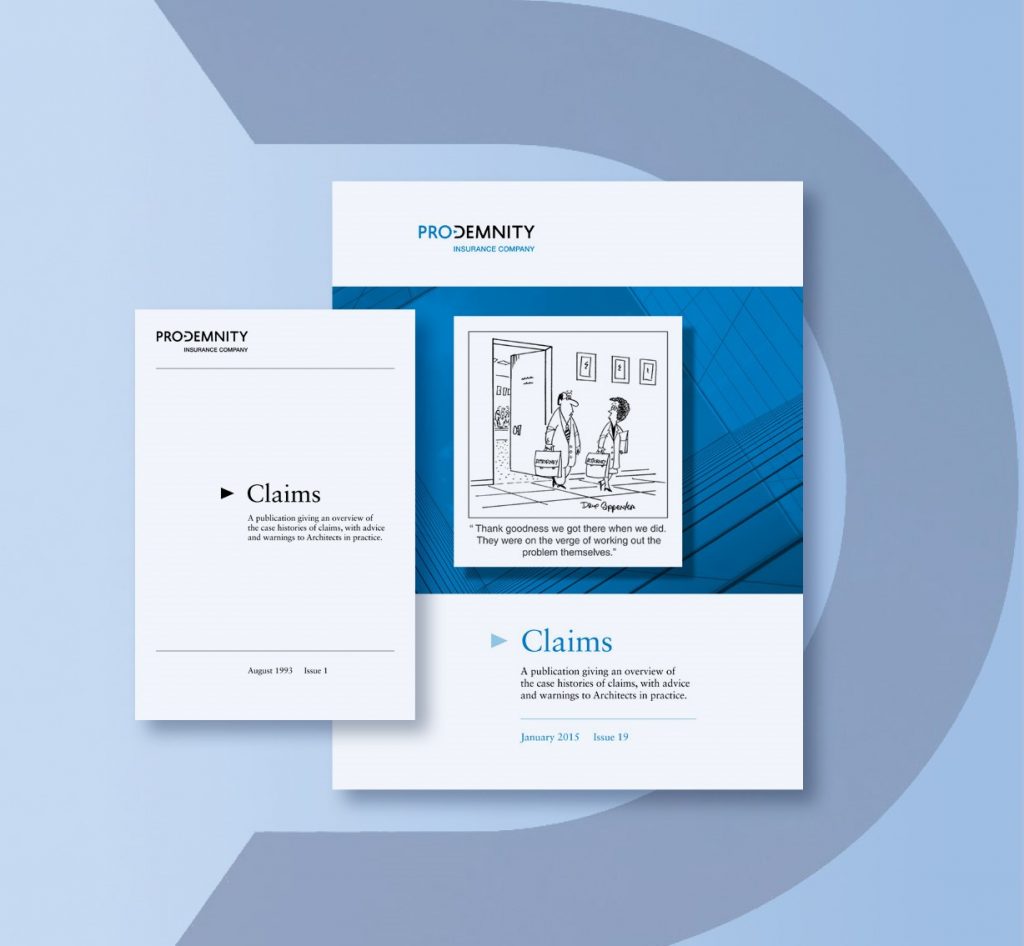Every insurance claim tells a story of human behaviour. There’s the factual side: what happened and why? And there’s the outcome: the physical, economic, emotional, social, relationship or professional consequences.
Pro-Demnity has played a central role in Ontario architects’ claims for 35 years, helping architects when they’ve experienced allegations of error or negligence. The situations were so interesting in fact, that David Croft (retired VP of Claims) – a keen observer of human behaviour – noted many of them over a period of 20+ years, spinning them into a treasure-trove collection of 72 accounts of architects in trouble: what got them there, how Pro-Demnity helped them deal with it, how they recovered from it, and what this tells us about human nature.
Now, Pro-Demnity is adapting many of the 72 claims stories into a podcast series, to share them more broadly with diverse audiences through a popular, growing media format.
“The Claims Stories, and the podcast series based on them, provide architects and interns with insight into many of the situations which can lead to claims,” explains Iliana Arapis, VP Marketing. “These are very human stories that offer up learning moments about professional practice, in a light, and accessible way.”
The podcast also touches on how professional liability insurance helps to support a strong, viable defense for architects whenever there are allegations of design error, omission or negligence.
The 22-minute pilot episode No Written Record contains three claim stories, dealing with the consequences of an architect failing to keep written records. The Stories have been fictionalized, to protect the identity of the parties involved, but each recount the circumstances of a real claim, inspired by the 6,000+ that Pro-Demnity has defended over the years. The “cast of characters” involve the Architect, the Client/Owner, the Sub-Contractors and others – whose situations are part of an unfolding drama, from the origin of the claim right up to the often-surprising outcome.
As with all good stories, Pro-Demnity’s Audio Claims Stories impart practical lessons. Architectural practice may be deeply rewarding, but there are very factual risks – insured and uninsured. The Stories alert the listener to some of the pitfalls (mostly avoidable), while reminding us that architects are only human after all.
The inaugural, pilot episode is available to download now on Apple Podcasts, Google Podcasts and Spotify.



The Backstory
The story of Claims Stories began nearly 30 years ago, in August 1993. Like every architect, David Croft has always been a keen observer of human behaviour. As a reflection of this interest, and as a down-time “hobby,” he began recording his extraordinary experiences as Pro-Demnity’s claims manager in August 1993.
The stories grew in number until there were six dozen of them – 72 factual accounts (20 booklets) of architects in trouble: what got them there, how Pro-Demnity helped them deal with it, how they recovered from it, and what this tells us about human nature. The objective of the stories – then and now – is to keep architects out of trouble by demonstrating how easy (and usually avoidable) getting into trouble can be. Every Claims Stories issue began with the admonition: “There but for the grace of God go I.”

The idea for audio Claims Stories came to us as a suggestion from the OAA Interns Committee: Wouldn’t it be great if Pro-Demnity’s Claims Stories were distributed in audio form as well as in print and online? The wisdom of this suggestion is easy to confirm considering the perpetual overbooking of our Claims Events, and the popularity of our one-on-one risk management call-in service.
In our 2019 Client Relationship Survey, many respondents reported a deep affection for the Claims
Stories booklets, and went on to suggest that we provide more communications vehicles of different kinds, in different forms. One respondent confessed that he or she had difficulty finding the time to read Pro-Demnity bulletins. We hear you. After staring at a screen all day who has the energy to read strings of words, no matter how important and interesting they may be? Also, you can’t watch a screen when you’re jogging or driving. At this point, an audio version of Claims Stories had become more than just a good idea. It had become a project.

